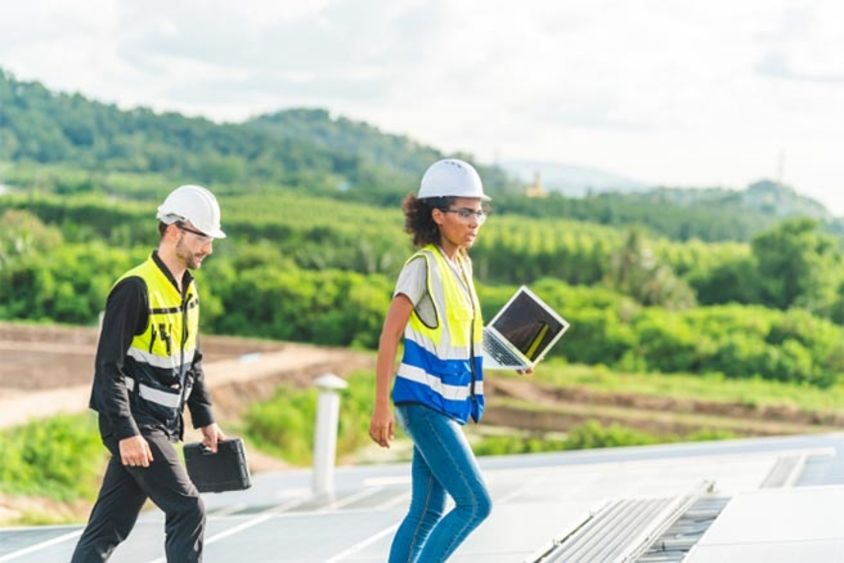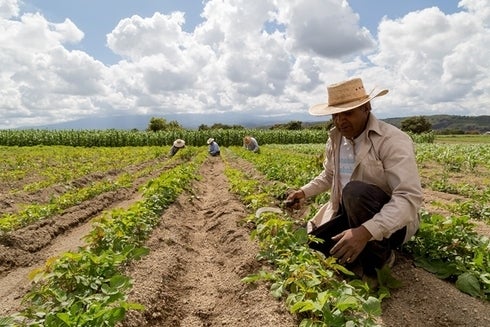We all want to have a good job: one with sufficient wages, protection against risks, and the security of reasonable income upon retirement. At IDB’s Labor Markets and Social Security Division we work closely with countries in Latin America and the Caribbean to raise the quality of jobs, promote access to productive work with social security coverage, and foster a productive workforce, prepared for ever-changing labor markets, with the skills demanded in modern, digital and greener productive sectors, and the opportunity to learn and reskill throughout their lives and adapt to the future of work.
Informality, working poverty, income inequality, and gender gaps persist in Latin American and Caribbean labor markets, along with 8% of unemployment. These challenges have many causes, but insufficient information and guidance on job opportunities, and proper matching between the skills demanded and the available talent, also hinder labor market development. We support countries in their efforts to enable access to quality jobs for workers, especially those with bigger obstacles to enter the workforce, such as youths and women, by strengthening the capacity and efficiency of Public Employment Services.
The key to navigating the ever-changing nature of work and labor markets is learning and acquiring new skills throughout our lives. Technological advancements and transitions towards greener economies present our countries with the need and the opportunity to invest in skills for work and human capital to harness and retain the jobs, services and investments that are flourishing in the economies. We work hand in hand with countries, industries and the private sector to equip workers in Latin America and the Caribbean with the skills of today’s productive sector.
Life expectancy in Latin America and the Caribbean is increasingly higher. By 2050 people older than 60 will represent the biggest percentage of the population in an unequal region with high levels of poverty and labor informality, and limited resources to cover the retirement of its old-age population. We support countries in Latin America and the Caribbean in their paths toward universal coverage and sustainability of their pensions systems.
Promoting Sustainable and Sufficient Pensions
Click here to learn more about the ways in which we can prepare the terrain for growth and quality labor markets and jobs.

Digitalization, artificial intelligence and automation, the expansion of the digital economy, the increasing longevity of our population, and countries’ transition to greener, decarbonized economies are some of the trends shifting the labor market today. They are generating new jobs, new businesses, new skills demands and new, unconventional types of work. We are constantly analyzing the ever-changing nature of work in Latin America and the Caribbean and generating and offering new data to help our region take advantage of the opportunities and minimize the risks around the future of work. Click here to learn more about the future of work in Latin America and the Caribbean.

In rapidly shifting labor markets, the traditional paradigm of studying during the first years of your life, and working until retirement age, just doesn’t hold anymore. Skills training is a lifelong matter, and it involves countries, industries and key allies like the IDB in developing skills strategies, adapting to ever-changing business landscapes and advancing the skills of the region’s workforce to stay competitive in the global market. Click here to read about our initiatives to advance skills for work and empower workers in the region.

58% of labor informality means that most workers cannot afford to save for the future, and 2 out of 5 people in old age don’t have enough resources to get by in the region. We need to rethink our pension systems so they can operate in contexts of high informality, help reduce it and extend social security to non-conventional workers. Click here to learn about the future of pensions.

Countries’ path to zero emission economies could generate up to 15 million extra jobs in our region, but this also means that millions of jobs in highly polluting industries will be lost. We need to guarantee a just transition in which no workers are left behind. Click here and learn how we accompany countries in harnessing the opportunities of the green transition.








Discover the topics in which we work to improve lives in Latin America and the Caribbean.
Explore our offices across countries and the work they do to improve lives.

